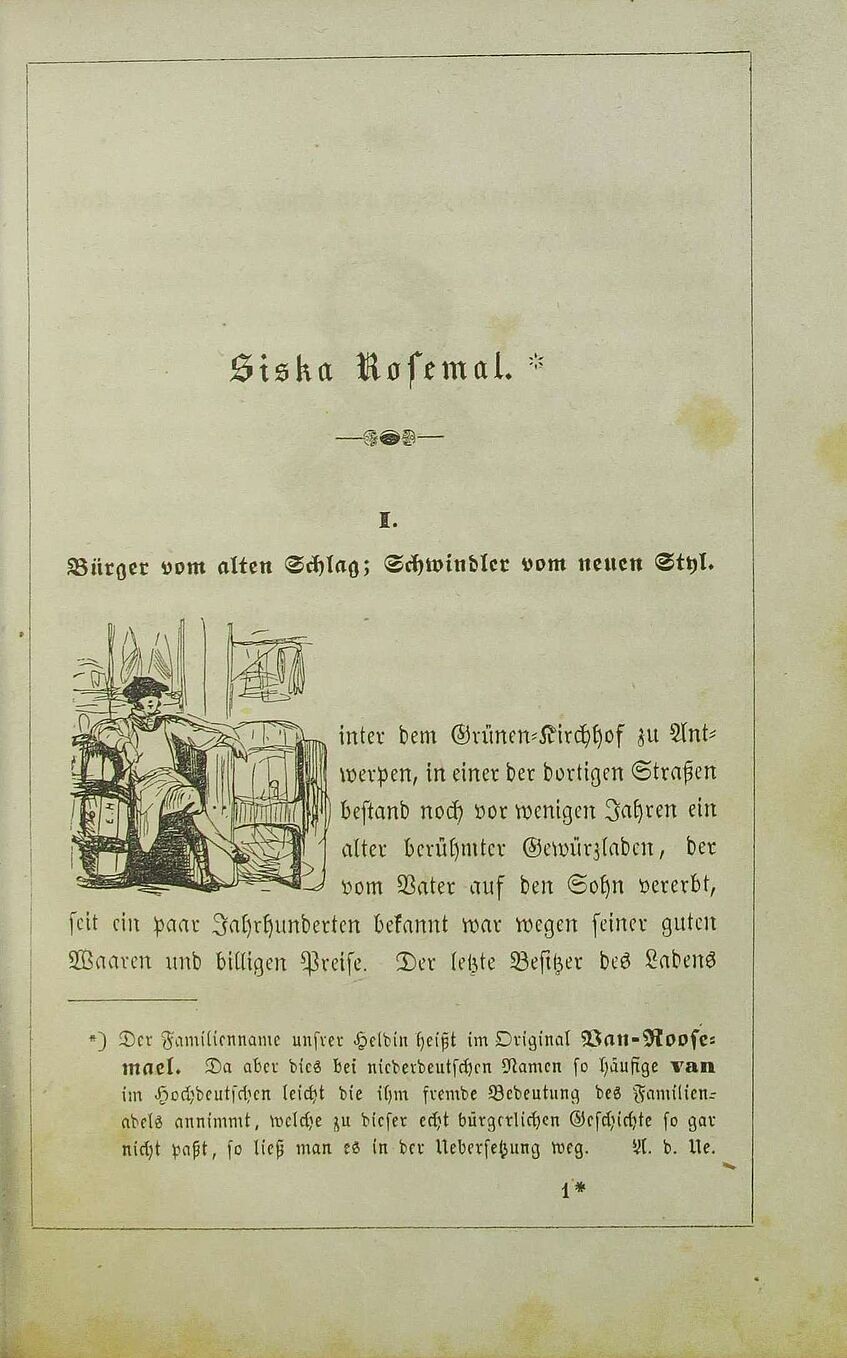Footnotes
Conscience’s Siska van Roosemael and Hoe men schilder wordt are characterized by an abundant use of footnotes explaining typically Antwerp expressions or habits. In Siska van Roosemael, which can be read as a critique on those who aim to improve their social position by adopting the French language and culture, many footnotes also serve to translate and comment on the French idiomatic expressions used by the characters.
The German translation contains less footnotes on language use, since Von Diepenbrock decided to translate French loanwords and expressions directly into German and to use a more standardized language variety. Some of the remaining footnotes have become less specific; the expression “rats”, which is explained in the source text as an Antwerp name for charlatans from France, becomes a Belgian phrase for “fremde Schwindler und Glücksritter” (Conscience 1845: 22) in the German translation, weakening the anti-French tone of the source text.
Elsewhere in the texts, Von Diepenbrock added footnotes that not only elucidate his choices as a translator, but also direct possible interpretations by the German target audience. For example, on the first page of Siska Rosemal he explains his omission of the surname prefix ‘Van’ in his translation of the heroin’s surname by arguing that the German association of the prefix with nobility does not at all fit into this “ echt bürgerliche Geschichte” (Conscience 1845: 19). The translator also adds a footnote to “verwälschen” as a translation of “verfranschen”, which he defines as “franzözische Manieren annehmen” (Conscience 1845: 21). For German-speaking readers, ‘wälsch’ may not only refer to Romanesque cultures and foreignness in general, but may also activate additional connotations of Rotwelsch (‘fraudulous speech’) or verfälschen, and as such establish a degradation of French culture. It is a word that was also used in combination with ‘verfälschen’ by nineteenth-century German patriots like Johann August Zeune (1778-1853) (Riedl 197).
Select Bibliography
Conscience, Hendrik. Flämisches Stilleben: in drei kleinen Erzählungen. Translated by Melchior Diepenbrock, F. Pustet, 1845.
Conscience, Hendrik. “Siska van Roosemael.” Volledige werken 32. Eenige bladzijden uit het boek der natuur. Siska van Roosemael. Hoe men schilder wordt, J. Lebègue, 1912, pp. 1–70.
Riedl, Peter Philipp. Öffentliche Rede in Der Zeitenwende: Deutsche Literatur Und Geschichte Um 1800. Vol. 142, Walter de Gruyter, 1997.

